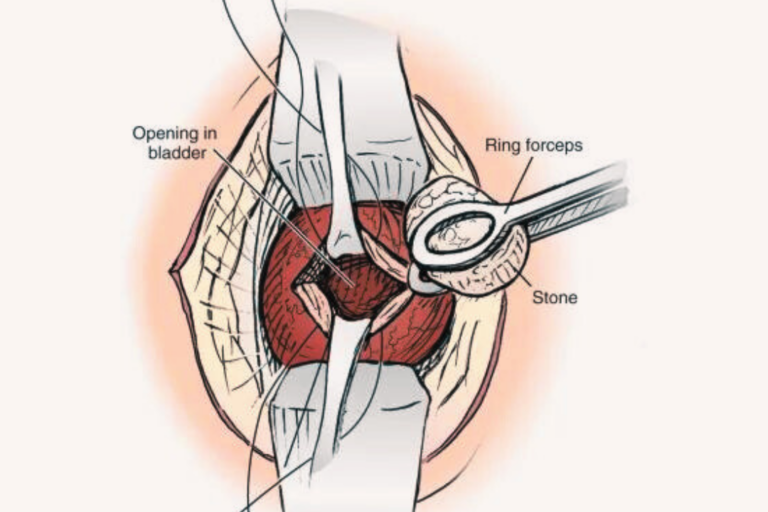Cystolithotomy

Cystolithotomy is a surgical procedure used to remove bladder stones, which are hard mineral deposits that form in the bladder and can cause pain, urinary tract infections, and other urinary problems. This procedure is typically recommended when the stones are too large to be passed naturally or treated with less invasive methods.
During cystolithotomy, an incision is made in the lower abdomen to access the bladder. The surgeon then opens the bladder and removes the stones. This can be done using traditional open surgery or with a minimally invasive approach using a cystoscope, which involves smaller incisions and a quicker recovery.
The procedure is performed under general or spinal anesthesia and usually takes about 1 to 2 hours. After the surgery, a catheter is placed to help with urine drainage while the bladder heals. Most patients can resume normal activities within a few weeks.
Cystolithotomy is highly effective for completely removing bladder stones and providing relief from symptoms. However, like any surgical procedure, it carries risks such as infection, bleeding, and injury to surrounding organs. Patients should discuss these risks with their healthcare provider and understand the recovery process to make an informed decision.




